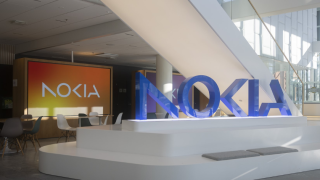The PoC tests involved the use of an autonomous control AI, the factorial kernel dynamic policy programming (FKDPP) algorithm developed by Yokogawa and the Institute of Science and Technology, in a cloud environment with 5G provided by NTT.
The test successfully controlled a simulated plant processing operation and demonstrated that 5G is capable for the remote control of actual plant processes.
Yokogawa says it has already proven that its FKDPP algorithm is a feasible AI solution, noting that it had successfully controlled processes known to be difficult to automate in tests from earlier this year.
The combination of the algorithm along with the cloud and 5G will offer low latency and the capability to connect a large number of devices, the firm added.
The tests come following an agreement between the two companies in April of last year which would see them work on this 5G use case.
This was strengthened by the fact that both companies are already members of the 5G Alliance for Connected Industries and Automation group which pursues industrial applications for 5G.
“By carrying out demonstrations in a wide range of customers' plants and examining communications reliability and latency-related issues during long-term use, the companies will strive to achieve 5G and AI-enabled autonomous control,” the two firms said in a joint statement.






